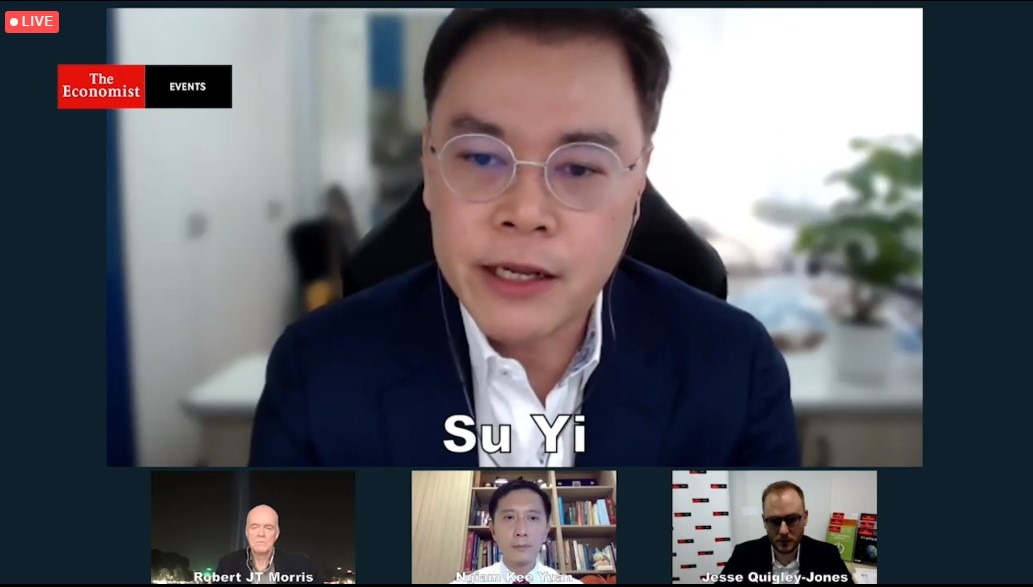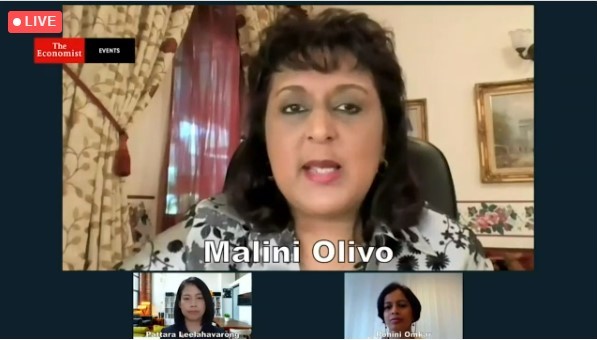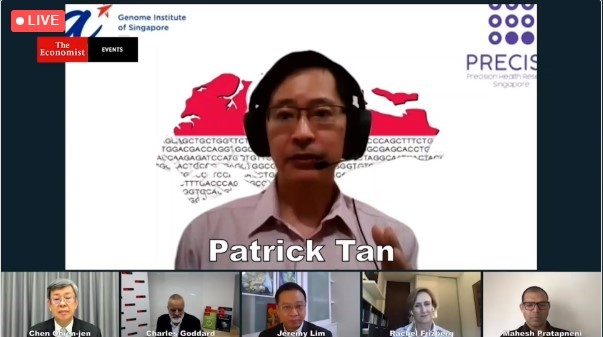A*STAR’s Insights on the Future of Healthcare
The COVID-19 pandemic has brought the urgent need for improved efficiencies in the healthcare system, to the fore. Against this backdrop, The Economist organised the virtual Future of Healthcare Week Asia webinar (16 - 20 November 2020), and brought together healthcare leaders from across the Asia-Pacific region, to take stock of lessons learnt from the COVID-19 pandemic, and discuss ways to strengthen healthcare systems for the future.
A*STAR’s experts were invited to take part in various panel sessions on innovative technologies that contribute to timely and accurate diagnosis, and the treatment of diseases. Alongside esteemed individuals from the public sector, academia and industry, Prof Malini Olivo, Director of Biophotonics and Head of the Laboratory of Bio-optical Imaging, Singapore Bioimaging Consortium (SBIC); Dr Su Yi, Deputy Executive Director, and Principal Scientist, Institute of High Performance Computing (IHPC); and Prof Patrick Tan, Executive Director, Genome Institute of Singapore (GIS); discussed key issues.
Here are some of the takeaways.
The Role of Artificial Intelligence in Healthcare Systems

To discuss how best artificial intelligence (AI) could be applied in healthcare systems in the future, Dr Su Yi of IHPC joined Dr Robert JT Morris, Chief Technology Strategist, MOH Office for Healthcare Transformation, Singapore; and Associate Professor Ngiam Kee Yuan, Group Chief Technology Officer, National University Health System on a panel discussion.
Dr Su shared that AI has the potential to replace tedious and manual activities, and fill the gap where there is a lack of a human doctor, or where healthcare services are not easily accessible. He observed that current health AI products are primarily used to focus human attention. One example is a chest- X-Ray project for COVID-19 screening by Tan Tock Seng Hospital. Most urgent cases are surfaced by AI so that these get the radiologists’ attention first. This is very useful especially when dealing with large screening volume.
On the performance of AI in healthcare, Dr Su highlighted that accuracy is not always the best measure. For example, in the area of health screening, a positive predictive rate might be a better performance metric because it measures how good the AI model is at picking out diseased subjects accurately.
Dr Su shared that a top-down approach with a proper system of governance can ensure compliance in the area of data privacy and security. An example is a trusted data sharing framework established by the Singapore National AI Office [PDF], which covers legal, regulatory and technical considerations; and guides all stakeholders to share data in a safe and secure way.
The How-to of Health Technology Assessment

Prof Olivo of SBIC and Dr Pattara Leelahavrong, Research Team Leader, from the Health Intervention and Technology Assessment Programme, under the Ministry of Public Health in Thailand, shared perspectives on the importance of heath technology assessment (HTA) in informing policy and decision making.
Prof Olivo shared that HTA for medical technologies (medtech), is a multi-disciplinary field that is exciting and fast evolving. She recommended that innovators incorporate components of HTA in the early development of medtech devices, as it is important to know early on if such devices would be deployed in the hospital setting and be evaluated for procurement and reimbursement.
She also pointed out that as health technologies become more complex to be evaluated for value and impact, start-ups, innovators and academic institutions should get into conversations with ecosystem stakeholders early, to aid the push towards clinical practice and adoption.
Prof Olivo added that the key to successfully bringing new medical technologies into the marketplace is designing and collecting the right data. Scientists and clinicians should be aware of the right health econometrics data required, and the proper methods to collect and analyse these data, so that they would be useful and helpful for HTA agencies to assess the value of these technologies for adoption and deployment.
Taking Precision Medicine Mainstream

Prof Patrick Tan of GIS was part of the panel discussing how the adoption of precision medicine could be accelerated, alongside Mr Chen Chien-jen, Academican/distinguished Research Fellow, Genomics Research Centre, Academia Sincia, and former Vice-President of Taiwan; Assoc Prof Jeremy Lin, Director, Global Health, Saw Swee Hock School of Public Health, National University of Singapore; Ms Rachel Frizberg, Area Head, Asia-Pacific, Roche Pharmaceuticals; Mr Mahesh Pratapneni, Founder and Managing Partner, Emerge Ventures and Executive Director, MedGenome.
Prof Tan pointed out that the promise of precision health is tremendous. By combining genetic data, electronic medical records and other health datasets, new insights would be generated, and which would allow for the interception of diseases before they manifest, and move medicine from a practice of treating individuals who are symptomatic, to maintaining their health.
He also shared that Singapore is in the process of developing a national precision medicine initiative. This will focus on identifying the right clinical scenarios, where the use of technologies can shift the needle on health care outcomes at affordable cost; generating the right sets of data; and establishing the right inter-operable platforms where data can be integrated and shared for precision medicine adoption.
Prof Tan emphasised that public trust is a top priority in data sharing, and that the public’s concerns such as issues of access to their data should be addressed clearly in the consent process. Furthermore, he highlighted the need to engage policymakers to develop regulations on data ownership and data sharing that would not be too onerous for data owners, such that owners would prefer to retain data within their siloes as they fear the penalties. The use of new technologies such as federated multi-party computation, and privacy-preserving analytics functions are also essential in facilitating the sharing, aggregation, and subsequent application of data across Singapore.
A*STAR celebrates International Women's Day

From groundbreaking discoveries to cutting-edge research, our researchers are empowering the next generation of female science, technology, engineering and mathematics (STEM) leaders.
Get inspired by our #WomeninSTEM
